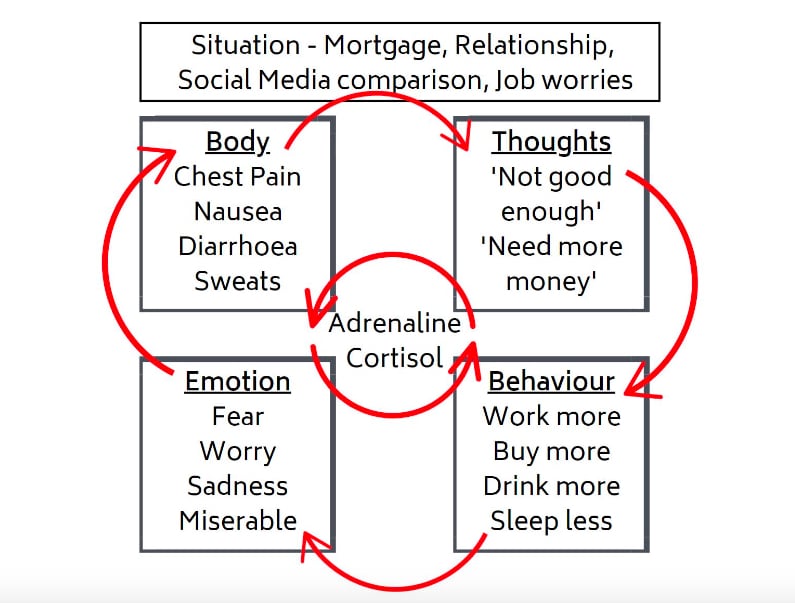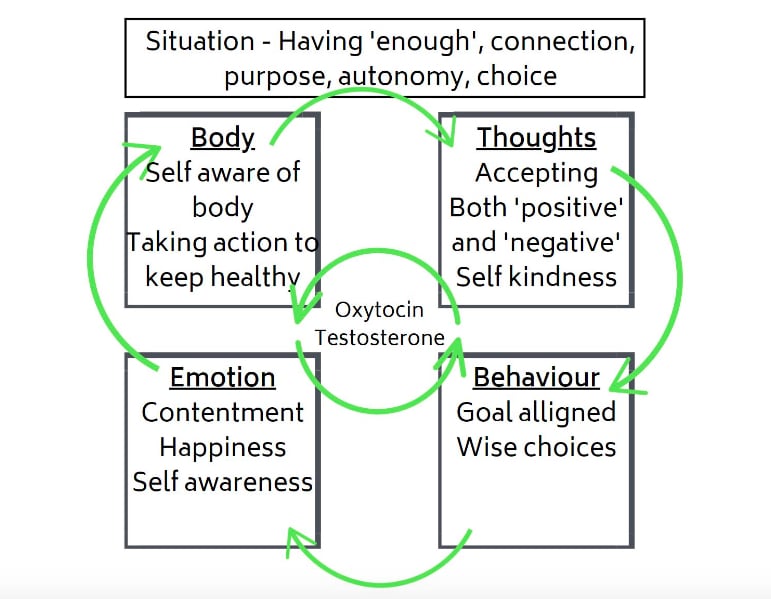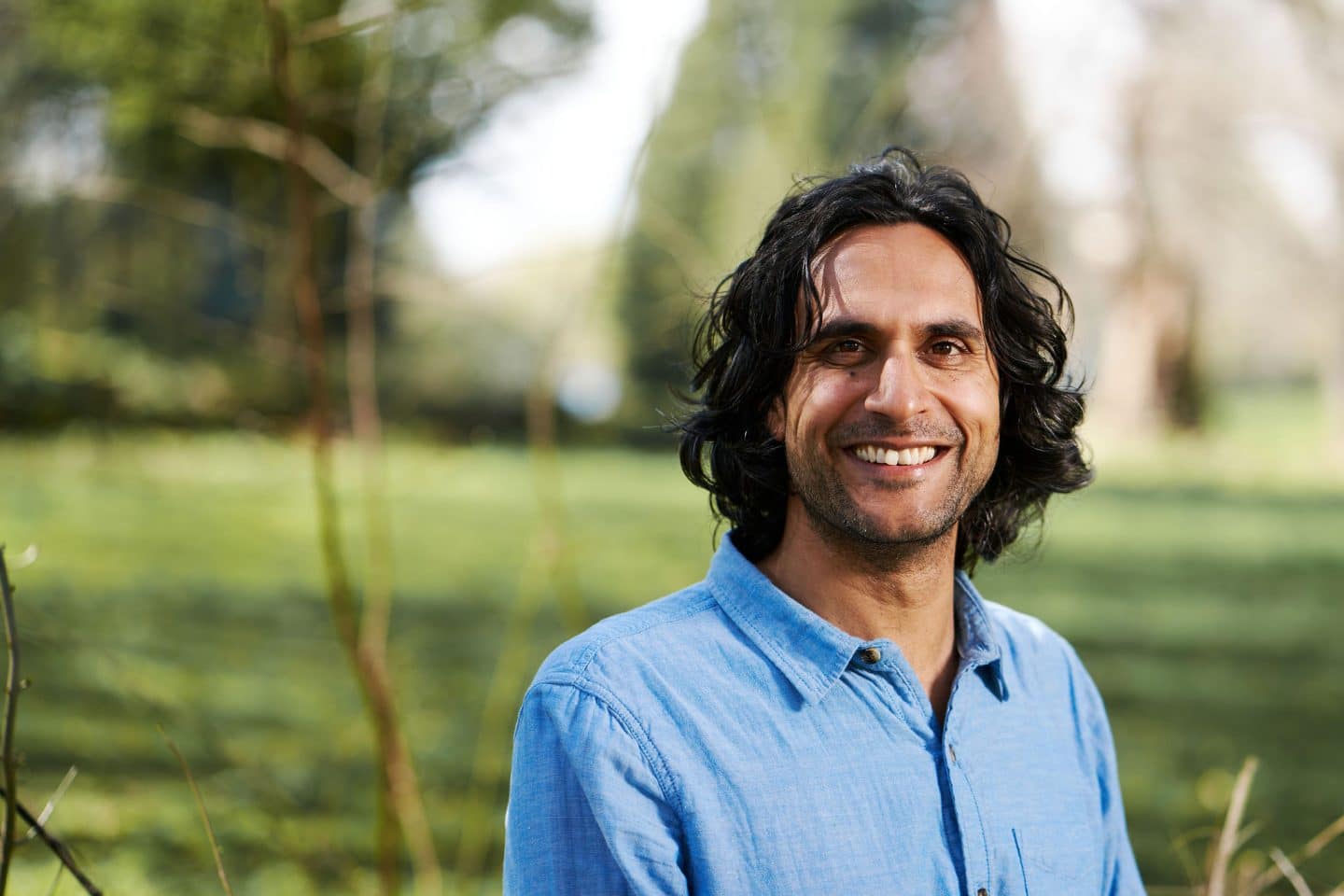Andrew Tate’s views on being a man – how damaging are they?
Masculinity
Andrew Tate's views on being a man have become very visible - yet their trad masculine approach only serves to reinforce the lid on the 'man box', says Dr Ed Rainbow...
Introduction
I am a standard man. I’m likely to earn more than a woman doing my job. I can dress how I like, my ideas are more likely to be listened to (even if I have no idea what I’m talking about). I can walk about and be less likely to be harassed.
Being a woman is much harder, statistically there is more housework and childcare, alongside trying to have a career. Life is pretty easy, right? So why am I three times more more likely to die by suicide than a woman? Or more likely to be homeless, have no friends or die of alcoholism?
What is being a man?
I’ve been partly asked to write this off the back of the rise (and subsequent arrest on charges of rape and human trafficking) of self-proclaimed misogynist Andrew Tate. In case you’ve missed him, he is a polarising character who attracts widespread vilification juxtaposed with a huge wave of support from young men and boys. A couple of his more (relatively) mundane social media posts caught my eye:
“The masculine perspective is you have to understand that life is war. It’s a war for the female you want. a war for the car you want. It’s a war for the money you want. It’s a war for the status. Masculine life is war.”
“I have everything every man has ever dreamed of. I got a big mansion, I got super cars, I can live anywhere I want, I got unlimited women, I go where I want… I do anything I want all the time. So, I’m an amazing role model.”
He talks about the life of a man being ‘war’, and life being an accumulation of money, power, status, cars and women. He’s very popular with billions of views on TikTok. But are his ideas true? Or good for us?
Man box
One way this has been studied is via the ‘Man Box’. You could probably guess at the contents of the box – just ask yourself, what is being a man?
These include:
Self-sufficiency
Acting tough
Physical attractiveness
Rigid masculine roles
Heterosexuality and homophobia
Hypersexuality
Aggression and control.
In 2017, young men aged 18-30 in the UK, USA and Mexico were questioned about the ‘Man box’. This is a set of values that are applied to men by society, determining acceptable behaviours.
Whilst certain areas around homosexuality were largely accepting, traditional views still scored highly. This included acting tough, even if internally scared (about 50%), the man bringing home the money (40%), knowing where your wife or girlfriend is all the time (40%), having the final say in a relationship (33%). The tough, strong, controlling image still resonates for quite a few young men.
But if we think back to those statistics about men’s mental health and the discrepancy with women, could these approaches be playing a role in the difficulties men experience?
The man box causes anxiety and mental illness
Until a few years ago, I bought into some of these values wholesale. I wasn’t particularly aware of them, but I knew I had to do certain things. Climb the career ladder, earn more money, get a mortgage and a car, start a family. If people asked how things were they were always automatically ‘fine’. I’m not sure I could really have told you if anything was particularly wrong.
Working as a GP, I had to help a lot of people, lots of whom had mental health problems. In a sense, this was a rewarding thing to do, as it enabled a chance to reflect on what had led to the difficulties that people were experiencing, and gave them a chance to do something about them.
The difficulty for me was they just kept coming, and I wanted to help. I took on extra roles to help the practice and further my development and growth.
Over time, though, odd things started to happen. I felt tired, my body started to ache. I became more preoccupied with thoughts that I wasn’t good enough, I was a failure, and that we needed more money. I worked harder, adding in more tasks, more patients, more complexity. I couldn’t wait to get to Fridays for a few beers. But there was a problem, the more I did the above, the more difficult things became. Exhaustion and poor sleep joined in. Even more worrying looking back was the daily thought when cycling home ‘Wouldn’t it be easier just to cycle into the oncoming traffic?’ Fortunately, I never acted on this specific thought. But I didn’t act on any of it.
I remember one clinic in my mind telling me ‘you’re more ill than the patients you’re seeing’. I just ignored it. I was increasingly angry at home, shouting at everyone, or just exhausted and asleep. I reached the point where I couldn’t get out of bed and I had to stop.
My approach was pretty typical of most men. Showing weakness through self-understanding, self-compassion was not an option. The only way was to keep going. But what I didn’t understand (and now do, though Cognitive Behavioural Therapy, or CBT) was that I was surviving on stress hormones to keep going, and that this isn’t sustainable, it just makes you ill in the long run. Unfortunately, this approach creates a downward spiral of bodily sensations, thoughts, emotions and behaviours which are self-reinforcing and ultimately made me really unwell. I believe that this spiral, alongside environmental, genetic and societal triggers means we’re more likely to end up in a situation of depression, homelessness, suicide or alcoholism.
Interestingly, one of the elements of Andrew Tate’s thinking – control, or the perception of it – ran through my thinking, and I think runs through this cycle more widely. There’s a desperate attempt trying to keep everything the same. Being rigid and inflexible is a way of trying to manage your own distress in this situation, something both is described by Andrew Tate and the Man box study

Compassionate approach
If we think that the tough, strong, controlling image of a man is damaging, how could we go about things to improve the situation?
My personal experience taught me that there was a more positive circle to be accessed which we can think about.

What could drive these improvements, biologically? There’s two key hormones here. One is Oxytocin. If you’ve ever been in love, or picked up your baby for the first time, you’ll know what having lots of this feels like. But it’s released with friendship and connecting with other people also. Another is Testosterone. I know it gets a bad rap for its associations with violence, but this is untrue – it’s involved with multiple areas of male functioning including sexually, strength, but also cognition, concentration and mood. So, we want to try and tap into these to improve how we feel and function.
One of the key things I have tried to do, and encourage men to do, is to increase their self-awareness. I know most of you are now thinking ‘what the hell is he talking about?’ but hear me out. One of the most important moments in my recovery was realising I had no real concept of my emotions. I perhaps could say that things were bad, or maybe my knees hurt when climbing stairs, but that was about it.
Paying attention to what’s going on inside is the key. To do this myself, I used a mindfulness-based CBT course called ‘Frantic World’ by Prof. Mark Williams. One example is paying attention to my body. Noticing what it feels like – there’s a whole range of sensations going on constantly, numbness, tingling, thumping. Also noticing my thoughts – again a constant stream, often of nonsense, or self-critical words. My emotional states fluctuate quite a lot, from awful to great (currently as I write this).
But the key is this – if I pay attention to myself, I can align what I do with how I feel. I’ve started to learn when I’m doing well and can concentrate, I do things like write this article. When I’m struggling & I need to stop, and do things like rest, spend time in nature or meditate. Another thing I do is reach out to friends, and play badminton. Via controlling these things, I’m more likely to be happy and healthy, and function better as a result.
And so I learned:
The only real thing we can control is ourselves, what we do and say, how we act.
And if I do these things, I’m more likely to exist in a positive state, do wise things, and be a positive influence in the world. I even get asked to write articles like this, which brings me joy.
And so, this makes me feel there is a positive masculinity that can be a force for the future. One where we are driven by things that help and improve us, and the world around us.
Where now?
OK, I admit, I’m not the core demographic of Andrew Tate fans. I suspect you worked that out having got this far. But the issues have have faced and tried to address are surely relevant to anyone drawn to that figure because they’re struggling for answers to being a more content man.
The question I now ask myself, what does a better man box look like? Here’s a list of some thoughts and tips that I’ve pulled together from mine and others’ experiences.
- Understanding and being kind to yourself. Your internal world exists, and can be a great source of understanding and strength. Learn to listen to yourself, perhaps through meditation, or just sitting quietly.
- Learn to be kind to yourself – if you’re having a hard time, and being self-critical, that’s ok. Say to yourself what’s happening, but also note ‘I don’t like this, but that’s OK, we don’t have to like all of our experiences.
- Self-acceptance – our external and internal self are as they are. Try not to fight yourself and your thoughts. If you want things to be different, allow yourself to experiment, perhaps a new hobby or some more exercise
- Connection sustains us – connecting with male friends, building groups of friendships and maintaining them by being part of them. Try texting a mate just to say Hi.
- Letting go of the mask of masculinity – it’s exhausting to give off the impression of continual strength and self-reliance. Write a few thoughts in a journal each day to get things off your chest.
- Having cooperative relationships with partners where we value each other’s abilities. Make time to communicate about the little and big things.
- Having balance in life – having enough, but not excess. Before increasing your mortgage again for the ‘forever kitchen’, think, is this really necessary? Will it make me happier? It’s OK to say no.
- Showing strength via reaching out for help, it’s using your resources and skills, not showing weakness. Seeing doctors or talking therapists can be off putting, but often female relatives can be an easy place to start.
- Supporting other boys and men through sharing our own experiences, as parents, uncles, grandads and through local clubs and organisations. Get involved with something or someone important to you
- Having sex should be a normal enjoyable thing for all involved; understanding and responding to each other’s wants and needs is key. Talk to your partner about these things, see what happens!
Thanks for taking the time to read this. If you’d like to read more like this, please have a look at my blog, or give me a follow online @mensmindgp.
Dr Ed Rainbow helps men improve their mental health without medication. If you like to know more, please visit mensmindgp.com

Trending

Join The Book of Man
Sign up to our daily newsletters to join the frontline of the revolution in masculinity.


















